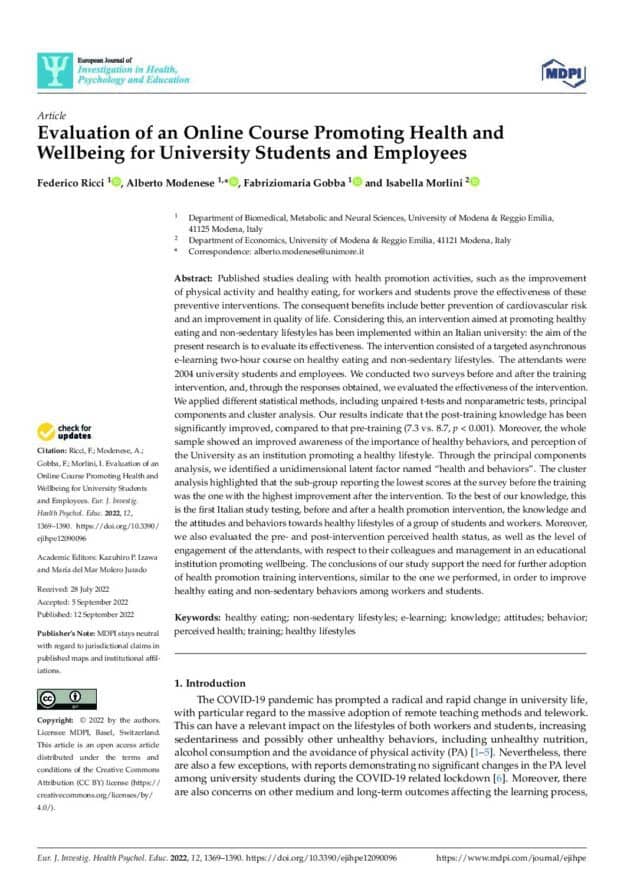Abstract
Published studies dealing with health promotion activities, such as the improvement of physical activity and healthy eating, for workers and students prove the effectiveness of these preventive interventions. The consequent benefits include better prevention of cardiovascular risk and an improvement in quality of life. Considering this, an intervention aimed at promoting healthy eating and non-sedentary lifestyles has been implemented within an Italian university: the aim of the present research is to evaluate its effectiveness.
The intervention consisted of a targeted asynchronous e-learning two-hour course on healthy eating and non-sedentary lifestyles. The attendants were 2004 university students and employees. We conducted two surveys before and after the training intervention, and, through the responses obtained, we evaluated the effectiveness of the intervention. We applied different statistical methods, including unpaired t-tests and nonparametric tests, principal components and cluster analysis. Our results indicate that the post-training knowledge has been significantly improved, compared to that pre-training (7.3 vs. 8.7, p < 0.001). Moreover, the whole sample showed an improved awareness of the importance of healthy behaviours, and perception of the University as an institution promoting a healthy lifestyle.
Through the principal components analysis, we identified a unidimensional latent factor named “health and behaviours”. The cluster analysis highlighted that the sub-group reporting the lowest scores at the survey before the training was the one with the highest improvement after the intervention. To the best of our knowledge, this is the first Italian study testing, before and after a health promotion intervention, the knowledge and the attitudes and behaviours towards healthy lifestyles of a group of students and workers. Moreover, we also evaluated the pre- and post-intervention perceived health status, as well as the level of engagement of the attendants, with respect to their colleagues and management in an educational institution promoting wellbeing. The conclusions of our study support the need for further adoption of health promotion training interventions, similar to the one we performed, in order to improve healthy eating and non-sedentary behaviours among workers and students.



Responses